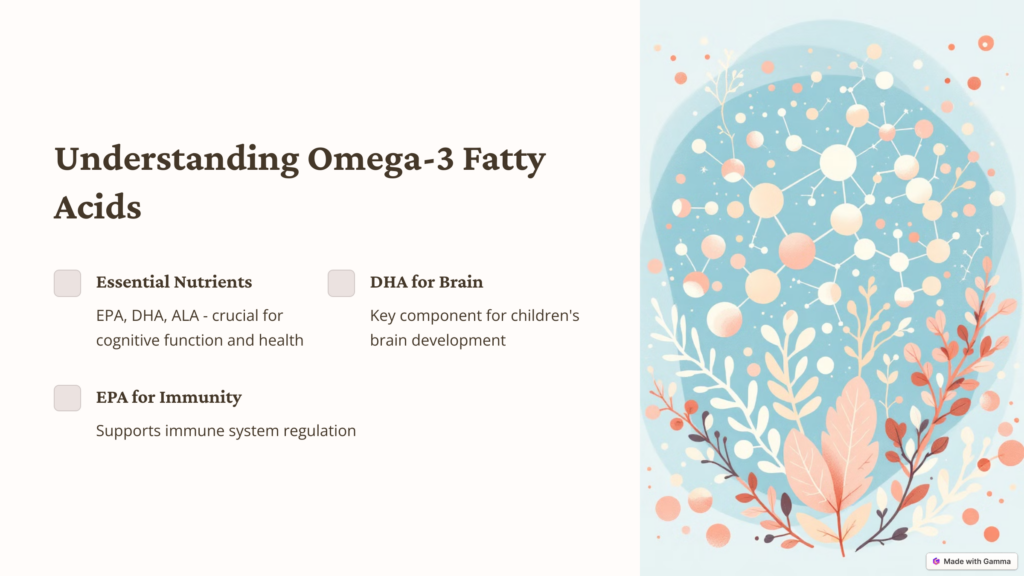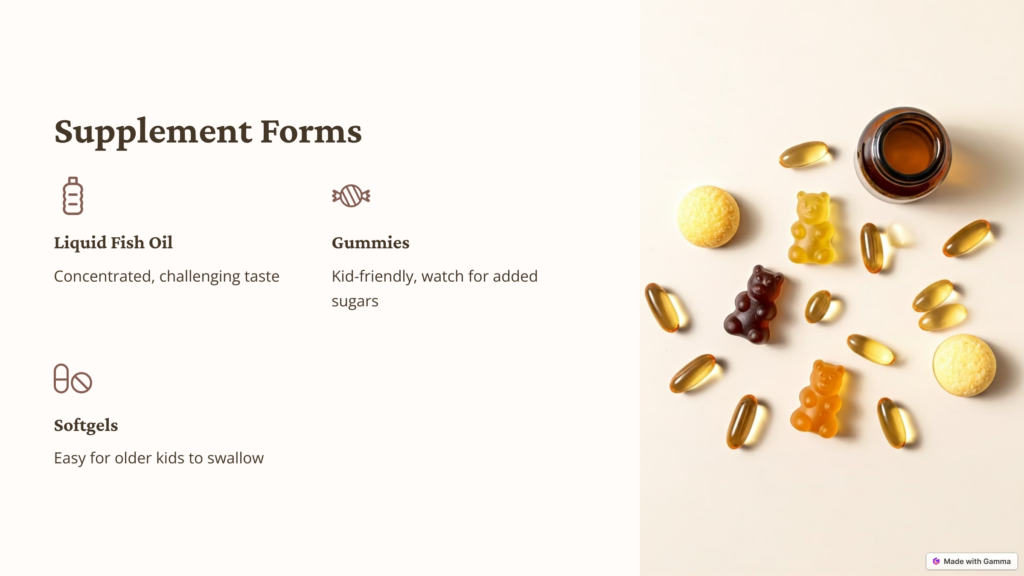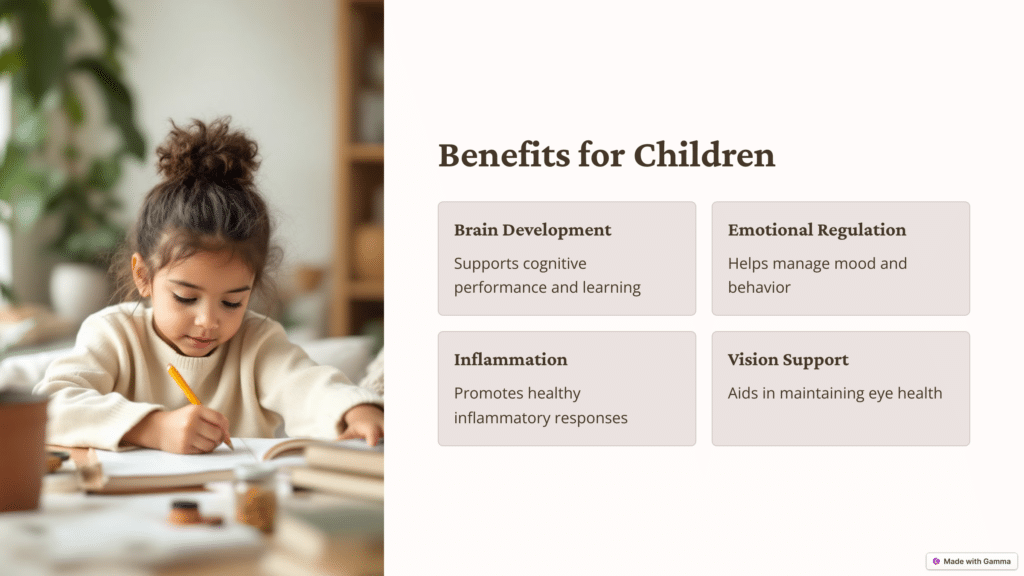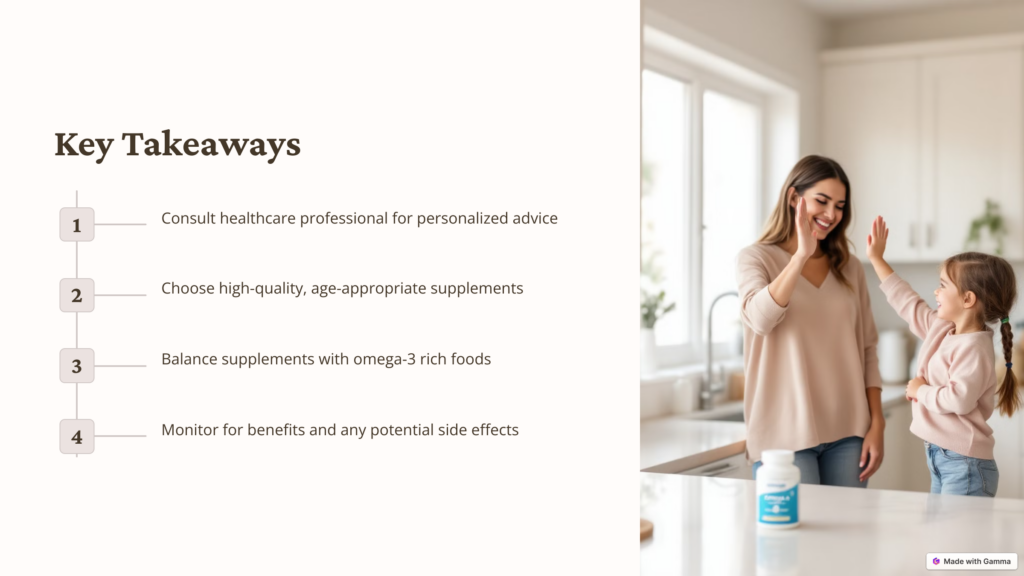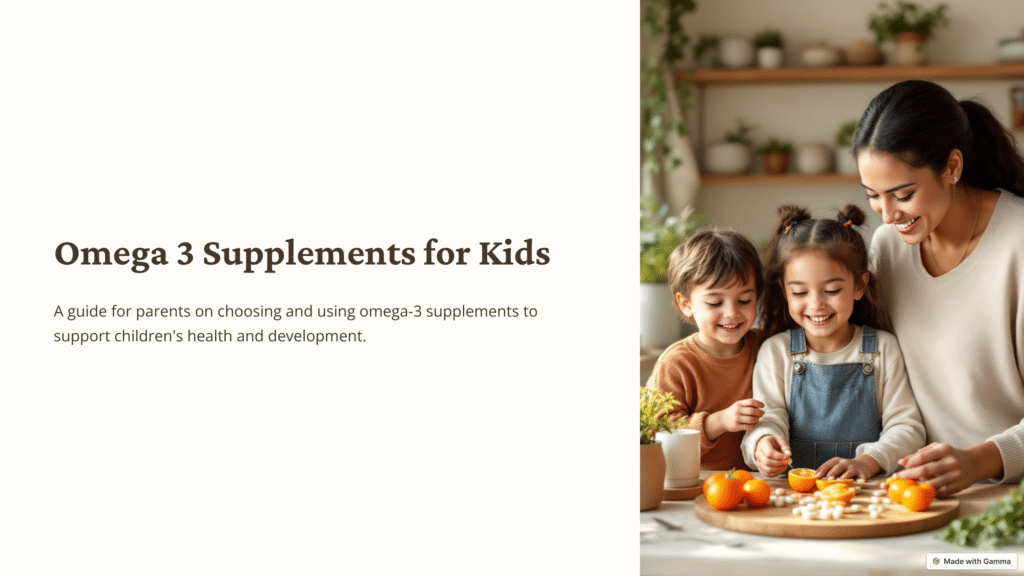 Omega 3 supplements for Kids
Omega 3 supplements for Kids
📌 Understanding Omega-3 Fatty Acids
Omega-3 fatty acids—primarily EPA (eicosapentaenoic acid), DHA (docosahexaenoic acid), and ALA (alpha-linolenic acid)—are essential nutrients that play significant roles in cognitive function, vision, and cardiovascular health. For children, DHA stands out as the key component for brain development, while EPA supports immune system regulation. Because our bodies don’t produce enough omega-3s naturally, dietary intake and supplementation become important.
Common dietary sources of omega-3s include fatty fish like salmon, sardines, and mackerel. Yet, if your child is a picky eater or has dietary restrictions, finding an appropriate supplement can help bridge the gap.
💊 Choosing the Right Omega 3 Supplement for Kids
When I first looked for omega 3 supplements for my kids, I realized there are several forms available, including liquid fish oils, gummies, and softgels. Each has unique benefits:
- Liquid Fish Oil: Often highly concentrated, but taste can be challenging.
- Gummies: Palatable for kids, but watch out for added sugars.
- Softgels: Easier for older kids who can swallow capsules.
Quality is key. Trustworthy brands provide third-party testing certifications (like IFOS or USP), ensuring purity, potency, and the absence of heavy metals. Taking a little extra time to read labels pays off in peace of mind.
🔬 Benefits Backed by Research
Numerous studies suggest that adequate omega-3 intake can support several health aspects in children:
- Brain development and cognitive performance
- Better emotional regulation
- Healthy inflammatory responses
- Vision support
My oldest child, for instance, showed improved focus in school once we consistently introduced a fish oil gummy. While anecdotal, this is consistent with broader scientific findings linking DHA to learning and memory. It’s heartening to see these real-life benefits, though every child might respond a bit differently.
⚖️ Dosage and Safety Considerations
Omega 3 supplements for kids dosage recommendations often vary by brand and child’s age. Many pediatricians suggest around 100–500 mg of combined EPA and DHA per day for children, but there’s no one-size-fits-all guideline. Always consult your doctor if you’re unsure, especially if your child has any existing medical conditions or allergies.
Here are a few safety pointers I followed:
- Check for purity: Reputable brands test for mercury, PCBs, and other contaminants.
- Start gradually: Introduce a lower dose to observe any digestive issues.
- Store properly: Fish oil supplements can oxidize if exposed to heat or light.
- Monitor total intake: If your child already eats fatty fish, adjust accordingly.
🍽️ Balancing Diet and Supplements
While supplements can be a convenient way to ensure adequate omega-3 intake, remember that real food always comes first. Try to incorporate family meals that feature salmon, tuna, or trout at least once a week. My go-to recipe is salmon patties, which my kids find fun to eat. This approach keeps their diet varied and interesting while reducing total reliance on supplements. Combining a nutritious diet with the right supplementation strategy can offer the best of both worlds.
🏁 Conclusion
Selecting the right omega 3 supplements for kids doesn’t have to be complicated. Focus on product quality, check for appropriate dosages, and prioritize a diet rich in whole foods. With consistency and a bit of creativity, you can help your child enjoy the benefits of omega-3 fatty acids without fuss.
In my experience, the payoff is well worth it. Healthy brains, better focus, and a happier, more energetic life—these are goals all parents can get behind. Just remember that each child is unique, so always keep an eye out for any signs of sensitivity or intolerance and consult a healthcare professional when in doubt.
❓ FAQ on Omega 3 Supplements for Kids
Q1. At what age can I start giving omega-3 supplements?
A: Many pediatricians might recommend starting around age 1 or 2, but it’s best to get personalized advice based on your child’s diet and health status.
Q2. My child hates fish—will gummies still be effective?
A: Yes, gummies can contain adequate amounts of EPA and DHA. Just watch out for added sugars.
Q3. Can omega-3 cause side effects?
A: Mild stomach upset or fishy burps can happen. Lowering the dose or switching brands might help. Serious side effects are rare.
Q4. Do vegetarian or vegan omega-3 supplements exist?
A: Absolutely! Algae-based DHA products are available, suitable for plant-based diets.
Q5. Should I combine omega-3 with other vitamins?
A: It depends on your child’s overall nutrient intake. Combining with a daily multivitamin could be beneficial, but consult your pediatrician to avoid overlapping nutrients.

